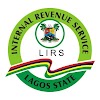Fuel Scarcity: Hold govt accountable, don’t blame labour, NLC advises Nigerians
“Rather than shift blame, every citizen should play an active role in holding the government accountable.”
The Nigeria Labour Congress (NLC) has called on Nigerians to hold the government accountable for its failure to resolve the lingering fuel crisis in the country rather than channel criticisms to the labour union.
The president of the Nigeria Labour Congress (NLC), Ayuba Wabba, on Wednesday, said the union has managed to keep the government from increasing fuel prices and removing subsidy, and that Nigerians should support the group rather than be “fixated on blame game”.
Mr Wabba spoke at the weekly episode of TwitterSpaces. The latest episode of the programme was titled “Unending Fuel Crisis, Attendant Consequences and Way Forward.”
The event was attended by Mr Wabba, the president of the Independent Petroleum Marketing Association of Nigeria (IPMAN), Chinedu Okoronkwo, the actress and activist, Kate Henshaw, and many Nigerians who were in the audience.
Nigerians have endured months of gruelling fuel shortages which started in 2021 after the government announced plans to end payment of subsidy on petrol. As the crisis lingered on, some have accused the organised labour, especially the NLC and the Trade Union Congress, of not doing enough to bring pressure on the government to ensure the problem is resolved, as they did in the past.
“Instead of coming together to support us, people are shifting blame to us. Rather than shift blame, every citizen should play an active role in holding the government accountable,” Mr Ayuba said.
“People play the blame game either due to propaganda or for the lack of information. People often forget that they have a duty to hold those they have elected into these offices accountable.”
He said NLC has done its best and that the major role of the NLC is to protect worker’s rights. Asked if the organised labour was doing enough to engage the government, Mr Wabba said if not for the union’s effort things would have been worse.
He criticised the government’s failure to solve the country’s energy crisis, a decades-long irony that has seen Africa’s largest crude oil producer continue to rely on refined fuel imports.
“The energy problem the world is facing today would have been of advantage to us if we were refining and selling,” he said.
“The issue facing Nigeria today can be linked to the neo-liberal policies we make, which are deliberate. The management of subsidies is also not done transparently. Energy is everything and without energy, there will be no life.
“Diesel for instance has been fully deregulated in Nigeria but up to date, still has no advantage. Many businesses are closing up because they cannot run their generators due to the high cost of diesel.”
Mr Wabba recalled that the current government had claimed that two of Nigeria’s refineries would be operational in 2020, but by 2022, the four refineries have remained shut down.
Mr Wabba said while diesel is the easiest commodity to refine and modular refineries could help in that area, the government chose to shut down the modular refineries instead of allowing them to refine.
“Functional refineries can be built in 12 months but the problem is that there is no political will to do these things. Marketers and regulatory agencies are holding Nigerians to ransom,” he said.
The president of IPMAN, Mr Okoronkwo, lamented the operational issues facing its members, and canvassed the removal of subsidy to allow prices to be determined by market forces.
“If we had allowed the subsidy to be removed, we would have been better off,” he said.
Ms Henshaw urged the government to fix Nigeria’s moribund refineries so that the nation could refine its oil resource.



.jpg)


.gif)
0 Comments